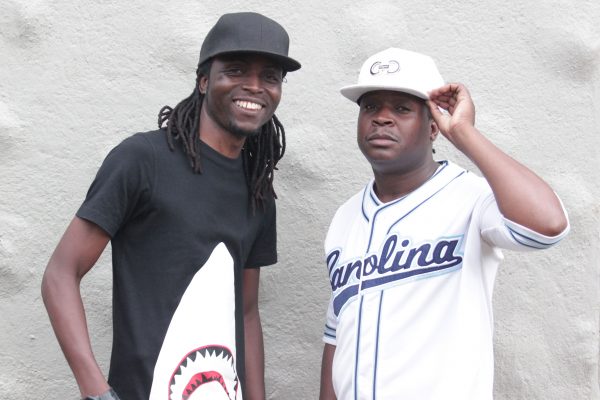
Last Thursday, music promotion company Jive Zimbabwe organised a “Meat and Greet” event where the who’s who in the local music industry met in Harare to exchange more than drinks and meat.
By Kennedy Nyavaya
Besides promoters and artists, there were also young, mostly youthful artists, with some still upcoming while others are already names of note in the unsparingly taxing industry.
In the middle of the active partying mood was Zimbabwe’s almost stonewashed music duo of Jimmy Mangezi and Norman Manwere, affectionately known as Extra Large.
Dressed in contrasting black and white attires from head to toe, one may have hardly noticed the once famed pair, even if it were in broad daylight in the middle of the central business district.
“As time goes on, new styles and genres crop up, change happens and usually our fans always want something that is fresh and trending so there was a time whereby attention shifted from our kind of music,” Mangezi told The Standard Style.
The two are the makers of early 2000s chart toppers Uriroja, Aiwa Mukoma featuring Sniper Storm and Muti Wemusango, among others.
Their star has, however, waned, but the dreadlocked half of the group (Mangezi) believes their relevance is timeless owing to the humourous social commentary in their songs.
- Chamisa under fire over US$120K donation
- Mavhunga puts DeMbare into Chibuku quarterfinals
- Pension funds bet on Cabora Bassa oilfields
- Councils defy govt fire tender directive
Keep Reading
“As long as there is life out there, we will never run out of stuff to talk about since we are social commentators; we will always have something to talk about and put humour to it,” he said.
Extra Large recently released their 14th album titled The Truth and although it is yet to make an impact, their hopes are pinned on its influence to spur them back to relevance.
In January they released the visuals of a single titled Papi Pacho in which they subtly announce themselves as pioneers of Zimdancehall while declaring their dominance.
Mangezi believes they deserve some credit for the diversity that “paved way” for the localised dancehall sounds.
“If you look at how versatile Extra Large has been, we sort of pioneered Zimdancehall because if you listen to some of our songs back then, they have a dancehall feel,” he said.
“I can say we sort of paved way for this genre to be there and to be where it is right now.”
Some would, however, argue otherwise as they have failed to blend into the system that has made new stars that ghetto youths idolise.
“That Extra Large that you knew back then is still the same one that we are now, if we managed to make hits back then, nothing has changed we can still make them,” Manwere weighed in.
However, a lot has changed for the two who are both married. For Manwere, a father of two boys, even the lyrical content now goes through a rigorous process of censoring.
“As a father, there are a lot of things I edit because there are many things I would not want my children to listen to, especially if it is said it came from their father,” he said, adding that his family is his source of inspiration to release more music.
“Being a father gives me the drive to keep pushing, although there are times things go wrong. when I look at my kids I feel that I need to do it for them so I am no longer doing it for myself but for my family.”
With music as their main source of livelihood, the two have no choice but to go big or starve.
Equally, they are banking on the uniqueness of their style and general appeal of jest to once more stagger to household prominence.
“It was easy for us to break into the market back then because we came in with our own style and because we were different and we couldn’t be compared to anyone,” said Mangezi
“We call our music social commentary of where we tackle sensitive societal issues, which people are afraid to talk about, so we are coming for more of those situations.”











